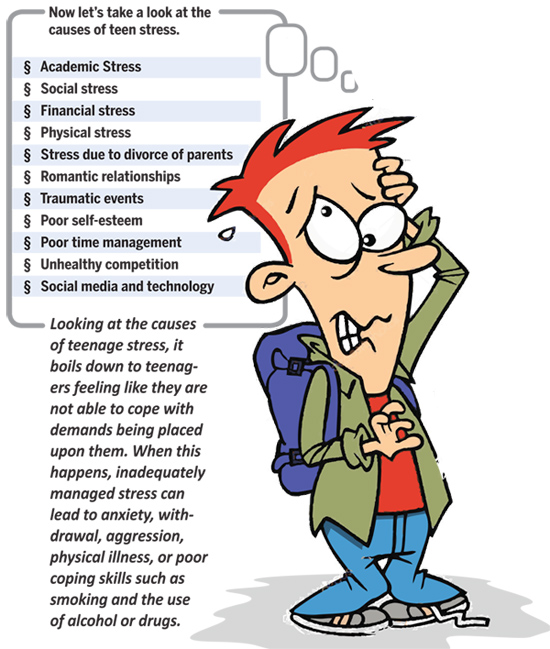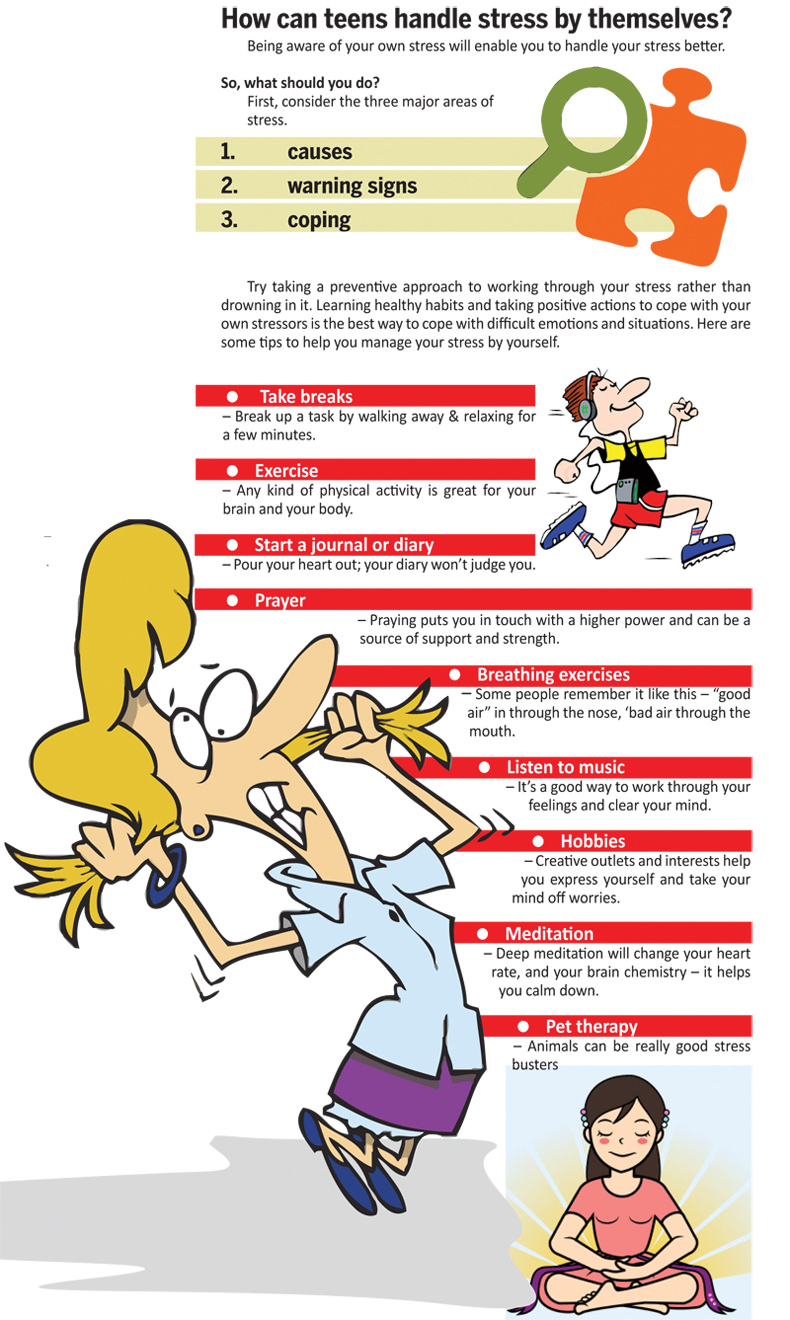
STRESS is NOT what happens to us. It is our RESPONSE to what happens. RESPONSE is something that we can choose. We all know that each of us is a unique person, and that our personalities are so vast that more mysteries of the mind is still to be studied by psychologists. Everyone has his own life experiences, which can never be the same as that of another. While life experience is one of the major factors that suffer STRESS RESPONSE, an individual’s personality, as well as hardiness and self-efficiency levels greatly influence’s his or her methods of RESPONDING TO STRESS.
Remember when we were little kids? When “apple” was something you ate and “windows” were mainly for staring out of? When the “TIMES TABLE” was learnt from a flash card and spelling things wrong and singing out of tune was so cute? Take a look at the crazy things we did as kids in school that are no longer in its existence today! Kids today, carry a scientific calculator, learn another language and write a 10 page research paper and are expected to remember moments in history from 200 years ago. The load on them is challenging to say the least.
Teenagers today live in a very competitive world and face more pressure than ever before. It is no wonder that many young people worry about letting down their parents, their peers and themselves. In trying to please everyone, they take on too many tasks until it becomes harder and harder to balance homework assignments, parties, sports activities and friends.
The result is, that they suffer from Stress.
Causes of teen stress
Stress is a word we use for a mixture of horrible feelings we get when everything seems too much. It might be triggered by a lot of things like completing school work, projects and reports, studying for an exam, bullying, or problems with family or friends or college admissions which are increasingly competitive, demanding teens to constantly strive to earn top grades and participate in a well-rounded variety of extracurricular activities. This kind of pressure is good when it encourages them to get better grades at school. But if it is affecting their cognitive abilities and taking a toll on their health, it is a concern. Stress among teenagers is a concern for them, their parents and their teachers.

Let’s take a look at the two faces of stress
Stress is a word most often related with negative meanings. Positive and negative stress differ based on the stressors, duration and their effects.
There are primarily two types of stress.

Good stress – Acute (short-term)
Stress that’s usually a response to a specific influence called a stressor. Good stress is short-term and pushes you to accomplish greater things. In these situations, you tend to have a lot of control over the outcome and the stress can motivate you positively.
 Bad stress – Chronic (long-term)
Bad stress – Chronic (long-term)
Stress that sticks with you or either has sprung from a short-term stress that stuck with you, or a constant state of stress that you’re under due to a persistent stressor and condition. Bad stress can be short-term or long-term. Bad stress is often accompanied by feelings of helplessness because you don’t have a lot of control over what’s happening and you may begin to feel compressed or trapped with negative feelings.
In other words, stress can either be GOOD or BAD depending on the level of one’s response to the stressors he or she encounters. Situations that make you feel stressed, are called stressors. However, not everyone reacts the same way to the same stressors. The level and extent of stress a person may feel depends a great deal on their attitude to a particular situation. An event that may be extremely stressful for one person can be a mere hiccup in another person’s life.
Good stress - happens when we confront a situation we believe we can manage or control. When we are exposed to mild or moderate stress, we are actually able to experience the positive side of stress. Acute stress is defined by the fact that it’s immediate and short term. In most cases, once the stressor has been removed, your body and mind return to a normal state.
Bad stress - happens when we’re in a threatening situation that goes on and on, and we don’t feel like we’re able to get through it. Chronic stress is characterized by its long-term nature. This is the type of stress that you feel that you’re under every day, with no reprieve from the things that make you feel stressed. Negative stress is actually about stress that is beyond one’s control. This bad impact of severe stress is often manifested in physical and mental symptoms. Bad stress can cause headache, nightmares, irritability and fatigue. Feeling stress over prolonged periods leads to distress and this in turn leads to various diseases.
How can parents help their teenager manage stress?
It is very important for parents to teach teens the art of handling stress and tension. Just like any adult, teenagers too feel stress from time to time. We can’t always control the things that causes stress, but we can control how we cope with stress. In other words, we need to understand that, we cannot eliminate stress! We can only manage it better to prevent it from taking over our life. This is called stress management.
Stress or tension that your teen is going through can be managed easily, only if you know what is causing it. Managing teenage stress can be challenging. Teenagers can be difficult to handle as it is. They become worse when they are stressed out. Getting angry with them and punishing them for their behavior when they are stressed is not going to help. If you want to help your teenager deal better with stress, you need to be there for them and support them through it, and not make it more difficult for them. Encourage your children to talk about what is worrying them. Talk is therapeutic and is one of the most effective stress relievers too. Also, talking about a problem will also help you find a solution for it sooner. The most important thing you should do as parents is to listen to your child’s feelings and see what you can do to make it easier for them. Recognizing the stressors that make them experience stress is the first step in helping them control their stress. What makes them happy cannot stress them out. Let your teenager do what she or he likes to relieve stress. It could be something as simple as listening to music, playing a game or watching a movie. You can only manage it better to prevent it from taking over their life. The sooner your teenager learns how to deal with stress, the better he will become in handling it himself.

